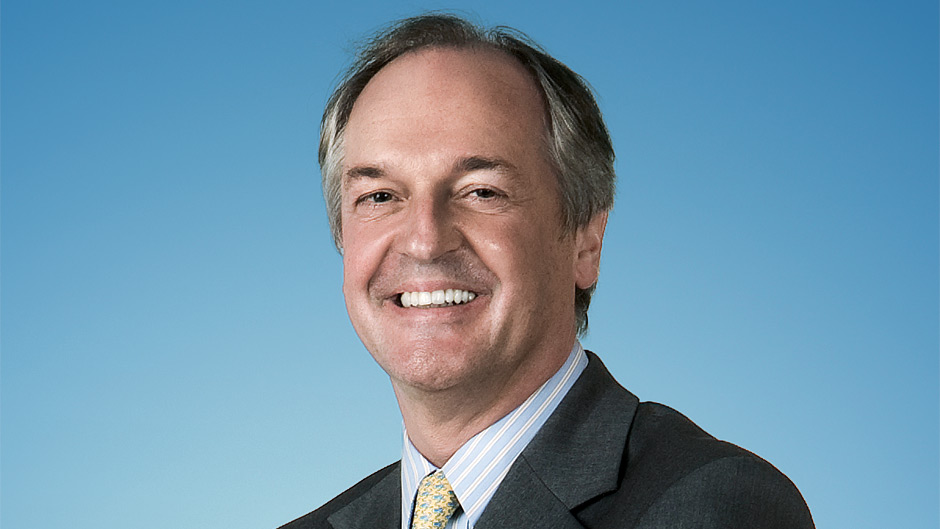The CEO of sustainability
The global CEO of Unilever wants to reduce greenhouse gas emissions, cut world poverty, promote human rights and still make a profit with all these conquests

Dutchman Paul Polman took charge of the Anglo-Dutch consumer goods multinational Unilever in January 2009. Since then he announced daring changes, such as the goal of doubling the company´s size by 2020 and, at the same time, cutting greenhouse gas effect emissions by half. The effort includes measures such as producing lower amounts of waste and the greater use of hydroelectric energy. Unilever has almost 180,000 employees worldwide and had revenues of US$ 65.4 billion last year, about 25% more than in 2009. Polman spoke to VEJA during a visit to Brazil last week to accompany a marketing initiative in Santo Antônio do Pinhal, in upstate São Paulo. This is an edited translation of an interview that appeared in the print edition of VEJA.
You launched a plan to double the size of Unilever. On the other hand, you talk about reducing the environmental impact of your products by half. How do you reconcile these two things?
Many companies believe they are doing good just by complying with the environmental legislation. There are others that decide to carry out philanthropy or one-off sustainability actions when they are earning a lot of money. This is what I call page two of the Annual Report. By doing so, they are carrying out important activities but these initiatives are not enough. I have always believed that social problems, such as poverty, climate change and human rights are very large and for this reason require a lot of work to be resolved. The government cannot deal with all these questions on its own. Private initiative needs to help. My aim is to show that our company is putting itself at the service of society to help remove individuals from poverty and take care of nature. Our success will depend on how much we succeed in improving people´s lives. As we work with consumer goods, we have to ensure that each one of our brands makes a positive contribution to society and the environment. For example, all the palm oil used in the production of our Dove soap brand is exploited in a sustainable way without leading to any deforestation. We have a detergent plant in Cali, Colombia, that only uses hydroelectric energy.
How do you reduce the environmental impact without increasing costs?
We need to think how to make our models more sustainable as the cost of leaving things as they are has a heavy weight. Our production plants have to consume less water, less pesticides and create less waste. Unilever spends 50 million euros annually to take its waste to landfills in trucks. I have just returned from the Turkish city of Rize on the Black Sea where the tea we sell is grown in the mountains of this region. It is hard work, generally carried out by women. However, they were not doing it in a sustainable way and had no knowledge of how to improve production. Even worse was the fact that production was declining as they were growing the plants in an incorrect way. We began a support program for this community and they started to use fewer pesticides and liters of water to plant tea. The result was a better quality product for our consumers and lower costs.
Is your company managing to beat its own targets?
We want to improve the health and wellbeing of one billion people but we know that we cannot do this in a few months. That is why we established a 10-year deadline. In the four years that have passed since then, the portion of our raw material with a sustainable origin has jumped from 10% to 48% of the total. We want to reach 100%. To do so, we need to adapt all our chain of suppliers which also sell to other companies. This makes this mission even more difficult. It certainly gives us a lot of work but if we do not make an effort, the business will pay the price. A detailed and global analysis should be made cautiously. Can we do good business in Palestine? And in Mali? A country that has managed to achieve enviable results in this area is China. Pollution and the environment have become priority issues for the government in Beijing.
China?
There are lots of people in China asking whether GDP should not be seen in another way. Instead of seeing the wealth that has been produced, people are talking about measuring the quality of life, air, water, education. The Chinese government´s 12th Five-year Plan contains an extremely progressive chapter on climate changes. I would be very pleased to see the Chinese talking about this at the UN Climate Change Conference that will be held in Peru in November.
Was a specific team formed within Unilever to take care of the sustainable issue?
I don´t believe in this. This subject should be treated throughout the whole organization. Companies usually have a social responsibility department and put employees who are near retirement age there and nobody knows exactly what they do. Instead of this, all our executives incorporate the sustainable issue as something strategic. It is only when everybody changes their way of thinking that we will be able to make the transformations we want and which are necessary.
One of the candidates for the Brazilian presidency is Marina Silva who was the Environment Minister during the Lula government. What do you think the priorities of a government focused on sustainability should be?
I am not Brazilian and I respect the democratic process of the country. Obviously, Marina Silva can already regard herself as a great champion as she came from a very poor background. Her fight for the Brazilian Amazon was recognized by the WWF (Silva was awarded the Duke of Edinburgh medal by the environmental NGO WWF in 2008). She knows that if we destroy nature, we will be destroying ourselves. Brazil needs to find a way of growing economically and sustainably. There were great opportunities to do so. When I visited supermarkets throughout the country, I noticed that the products were all very bulky. If the government were to approve a law requiring certain items, such as detergents, to be more concentrated, this would reduce the costs of logistics. More products could be put in the truck and, therefore, less fuel would be used. This is done in countries in Europe and the United States.
Brazilian industry is among those that have lost competitiveness over the last decade. Has Unilever cut back in investments here because of this?
No because we are continuing to grow here. Brazil is a big market and we have managed to be efficient within it. However, the labor costs are growing and Brazil faces the challenge of becoming more competitive on the international front. We need to be sure that these costs will not rise a lot in the long term to the extent that they damage productivity and, in turn, our business.
Why do you say that capitalism needs to evolve?
The former British Prime Minister Winston Churchill once said: “Democracy is the worst form of government, except for all the others.” I say the same about capitalism which is the best system invented. I have known a lot of economies controlled by the state. Where there is no competition, the citizens always end up suffering. The America president Franklin D. Roosevelt created the New Deal in the 1930s. This was a program of social measures to reduce the impact of the crisis on the poorer class of the population. Roosevelt understood that the country needed to work more for the common good and that changes were needed to do so, such as the establishment of pension and health systems. What we are trying to do in Unilever is find this balance once again. It is a different form of capitalism. In 2013, we created the B Team, that brings together 14 of the most influential world leaders, such as the Indian Ratan Tata and Englishman Richard Branson, to set up a Plan B for capitalism.
You were the first executive to become CEO of Unilever without having previously worked for the company. How did this break in tradition come about?
There was certain skepticism about bringing in someone from outside and I heard some comments about why they could not promote people from within the company. For someone in my situation, it was important to bear in mind at that time that you had been sought out in the market exactly because you would do something different from what was being done. Before changing anything, I tried to really understand what was working and what was not. I studied the company´s trajectory, its values and the reasons that make Unilever such a highly successful company months before taking up the job. The difficult part was having to quickly learn a lot of things which those who worked there already knew. Having done this, it was extremely important to gain the respect of the others who saw and recognized my commitment.
You announced a series of controversial measures in your first week in the job, including a decision to stop publishing results every quarter. What was the reason?
We needed to show the market and our employees that we would do things differently. A company cannot run its business on a quarterly basis. If it does so, it starts taking short-term decisions that do not fit in with its long-term business strategy. Our company´s concern to satisfy expectations of investors every 90 days meant it was investing less than it needed in people, research and development, IT systems, plants. We also stopped publishing our financial expectations. This guidance, as it is known, was really stupid. It did not make any sense for a company to take decisions based on these forecasts. The third thing we did was to progressively change our remuneration system which is now much more focused on the performance of our executives and how they achieve or not the long-term goals. The same logic goes for me. In large companies like Unilever, the CEO stays for an average of 4.5 years. I have already been in this function for almost six years and the question that I most hear in the corridors is how much longer I am going to stay. This type of question is absurd. The questions companies like Unilever have to deal with are complex and demand more time to be resolved.
How have these innovations been received by the market?
Our shares fell by 8% shortly after the announcement that we would be ending the quarterly reports and financial expectations. The fall reflected a general lack of confidence. Many people believe corporations that stop publishing this information are hiding bad news. However, we knew that if we followed the path that was planned, this would be reflected in the share price over time. This is what has happened and the share price has doubled from 2009 to date.
Was there any alteration in the profile of the shareholders?
The positive side of this change is that we moved closer to those investors who have a real affinity with the company´s strategy and distanced ourselves from those we do not want. Our shareholders are pension funds and large foundations that are looking at the long term. It is a little bit like the strategy of the American investor Warren Buffett. Our relationship with the financial community has also improved. When we published quarterly reports, many of the discussions were stupid. If there had been a fall in ice-cream sales, for example, we had to give an explanation, such as an unexpected change in the temperature of the planet. By focusing on the long term, we started to have a more strategic view of our business.


 SEGUIR
SEGUIR
 SEGUINDO
SEGUINDO

 Putin fala em conflito global e diz que Rússia está ‘pronta para combate’
Putin fala em conflito global e diz que Rússia está ‘pronta para combate’ A apresentadora do SBT que ficou no meio de ‘fogo cruzado’ com a Globo
A apresentadora do SBT que ficou no meio de ‘fogo cruzado’ com a Globo SBT apaga vídeo comprometedor sobre doações no RS
SBT apaga vídeo comprometedor sobre doações no RS O próximo astro internacional a se apresentar em Copacabana
O próximo astro internacional a se apresentar em Copacabana O que o resgate do cavalo Caramelo revela sobre o Brasil
O que o resgate do cavalo Caramelo revela sobre o Brasil







